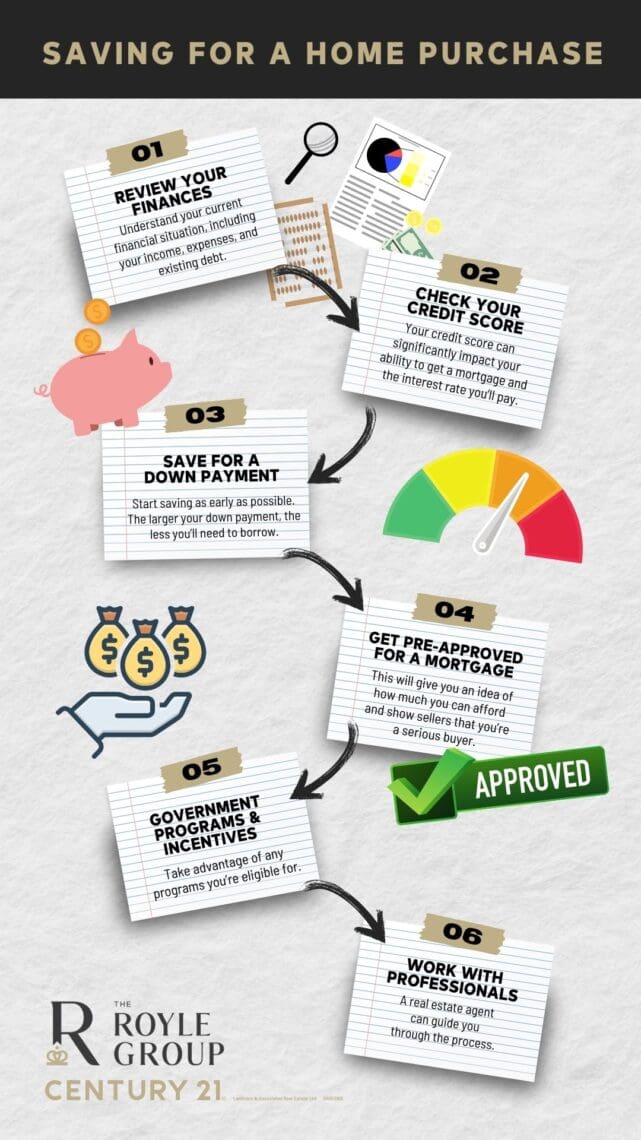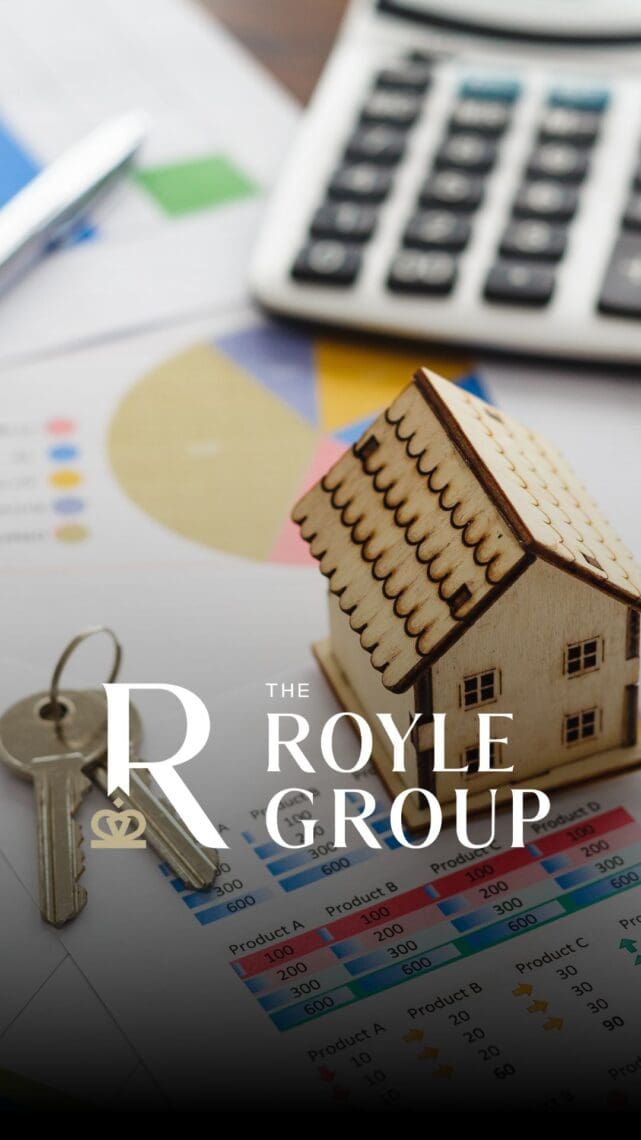Buying / Jan 15, 2024
How to Prepare to Buy a Home
Are you dreaming of owning your own home but feeling overwhelmed by the financial aspects of it? Fear not! In this article, we will guide you through the basics of how to prepare to buy a home. Whether you are a first-time buyer or looking to upgrade, having your finances in order is essential.
Get ready to achieve your homeownership dreams – let’s dive into the world of financial planning for a successful home purchase!
Assessing Your Current Financial Situation
Purchasing a home is one of the biggest financial decisions you’ll ever make. It’s essential to have a well-thought-out financial plan in place before taking the leap. Financial planning allows you to assess your current situation, set goals, and create a roadmap to achieve them. Without proper planning, you may find yourself in a financial bind or unable to secure a mortgage loan.
Before diving into the world of homeownership, it’s crucial to assess your current financial situation. This involves taking a close look at your income, expenses, and existing debts. By doing so, you can determine how much you can afford to spend on a home and what monthly mortgage payments you can comfortably handle.
Start by calculating your total monthly income. Include all sources of income, such as your salary, investments, and any additional side income. Next, list all your monthly expenses, including fixed costs like rent, utilities, and transportation, as well as variable expenses like groceries, entertainment, and dining out.
Once you have a clear understanding of your income and expenses, subtract your expenses from your income to determine your disposable income. This amount will give you a good idea of how much you can set aside for savings and potential mortgage payments.
Creating a Budget for Saving and Expenses
Creating a budget is an essential part of preparing for a home purchase.
Start by listing all your monthly income sources and subtracting your fixed expenses, such as rent or mortgage payments, utilities, and transportation costs. Next, allocate a portion of your income towards savings specifically for your home purchase. This could be a set amount or a percentage of your income. Having a dedicated savings account will help you stay disciplined and separate your home funds from your day-to-day expenses.
Determine how much you need to save for a down payment. Most lenders require a down payment of at least 20% of the home’s purchase price. Setting this goal will help you stay focused and motivated to save.
In addition to the down payment, consider other costs associated with buying a home, such as closing costs, home inspections, and moving expenses. It’s crucial to factor in these expenses when setting your financial goals to ensure you have enough funds to cover them.
Mortgage Pre-Approval
One of the first steps in the home buying process is getting pre-approved for a mortgage. This involves a lender evaluating your financial situation to determine how much they would be willing to lend you. The pre-approval process gives you an idea of your borrowing capacity, which can guide your home search and help you budget appropriately.
To get pre-approved, you’ll need to provide your lender with various financial documents, such as pay stubs, tax returns, and information about your debts. The lender will also check your credit score. A pre-approval letter from your lender states that you have the credit and financial security to afford the home you’re interested in.
Understanding Mortgage Options and Affordability
Understanding mortgage options and affordability is crucial when preparing to buy a home. Research different types of mortgages available and compare interest rates and terms. This will help you determine which option is best suited to your financial situation.
Consider visiting multiple lenders to get pre-approved for a mortgage. This process will give you a clear understanding of how much you can afford to borrow and the interest rates you qualify for. Pre-approval also strengthens your position as a buyer, as sellers see you as a serious and capable candidate.
Credit Score
Your credit score plays a crucial role in the home buying process. Lenders use it to determine your creditworthiness and to set the interest rate on your mortgage loan. Start by paying off any high-interest debts, such as credit card balances or personal loans. Focus on reducing your debt-to-income ratio, as this is an important factor lenders consider. Additionally, make sure to pay all your bills on time and avoid taking on new credit. These actions will demonstrate financial responsibility and positively impact your credit score.
Down Payment
Saving for a down payment is often the most challenging part of preparing for a home purchase. Begin by setting a target amount based on your financial goals and the price range of homes you are considering.
The down payment is a percentage of the home’s purchase price that you pay upfront. The size of the down payment can affect your mortgage terms and your monthly mortgage payments. It’s important to remember that the more substantial your down payment, the lower your mortgage loan and monthly payments will be. While the specific amount you’ll need can vary depending on the price of the home and the terms of your mortgage, it’s generally recommended to aim for a down payment of at least 20% of the purchase price. This can help you avoid the need for mortgage insurance, which can add to your monthly costs.
To speed up your savings, consider cutting back on non-essential expenses. This could mean dining out less frequently, reducing entertainment costs, or finding ways to save on utilities. Additionally, explore opportunities to increase your income, such as taking on a side job or freelancing. Every extra dollar saved brings you closer to your homeownership dreams.
Do you want to know what it takes to afford that dream house or investment property you’ve been saving for? Use our buyer calculator to compare mortgage rates, payment plans, interest rates, and finance options.
Working With Professionals
Navigating the world of financial planning can be overwhelming, especially when preparing for a home purchase. Consider working with professionals who specialize in real estate and mortgages. They can provide expert guidance tailored to your unique situation and help you make informed decisions.
A financial planner will review your finances, offer personalized advice, and help you develop a realistic plan to achieve your homeownership goals. They can also assist in finding the best mortgage options, negotiating with lenders, and ensuring you stay on track with your financial plan.
A real estate agent can guide you through the process, helping you find a home that fits your budget and meets your needs. They can also put you in contact with local and reputable financial planners, advisors, and other resources.
Government Programs and Incentives
As a first-time homebuyer in Ontario, you may be eligible for various government programs and incentives that can help make homeownership more affordable. These can include tax credits, grants, and loan programs designed to assist first-time buyers.
For example, the Home Buyers’ Plan (HBP) allows first-time homebuyers to withdraw up to $35,000 from their Registered Retirement Savings Plan (RRSP) to buy or build a qualifying home. The funds withdrawn must be repaid within 15 years, but this can provide a significant boost to your down payment savings.
A first home savings account (FHSA) is a registered plan allowing you, as a prospective first-time home buyer, to save for your first home tax-free (up to certain limits). You may be eligible to save up to $40,000 tax-free to buy a home with an annual contribution limit of $8,000.
It’s important to research these programs and understand the eligibility requirements and terms before you begin the home buying process.
Tips for Staying on Track With Your Financial Plan
Sticking to your financial plan is essential to achieving your homeownership dreams. Here are some tips to help you stay on track:
1. Monitor your progress regularly: Keep a close eye on your savings, expenses, and debt reduction. Regularly reviewing your financial situation will help you identify areas for improvement and ensure you are on target to meet your goals.
2. Stay disciplined: Avoid unnecessary spending and stick to your budget. It’s easy to get caught up in the excitement of buying a home, but staying disciplined will ensure you have enough funds for a down payment and other associated costs.
3. Automate savings: Set up automatic transfers from your paycheck to your dedicated home savings account. This way, you won’t have to rely on willpower alone to save, and your savings will grow consistently.
4. Seek support: Share your financial goals with friends and family. Having a support system can provide motivation and accountability throughout the home buying process.
Key Steps for Getting Started
1. Review your finances: Understand your current financial situation, including your income, expenses, and existing debt.
2. Check your credit score: Your credit score can significantly impact your ability to get a mortgage and the interest rate you’ll pay.
3. Save for a down payment: Start saving as early as possible. The larger your down payment, the less you’ll need to borrow.
4. Get pre-approved for a mortgage: This will give you an idea of how much you can afford and show sellers that you’re a serious buyer.
5. Research government programs and incentives: Take advantage of any programs for which you’re eligible. These can make homeownership more affordable.
6. Work with professionals: A real estate agent can guide you through the process, helping you find a home that fits your budget and meets your needs.
By following these steps, you can prepare your finances for a home purchase and make the process of buying your first home a little less daunting. At The Royle Group, we understand the gravity of your journey towards homeownership. Our team is here to provide personalized guidance and support at every step. If you’re ready to turn your homeownership dreams into reality, connect with us today. Your future home awaits, and we’re here to make your real estate journey seamless and successful.
Want more like? “How to Prepare to Buy a Home”
Learn More:
- Mortgage Pre-Approval: How it Can Give You an Advantage
- Home Financing Podcast Episodes & More
- Buying A Home Podcast Episodes & More
Tools & Resources:
- Prepare To Buy: Download Our FREE Buyers Workbook
- Curious What You Can Afford?: Use Our Buyers Calculator
- Browsing For Homes? Start Your Home Search
- Hoping to Sell? Get A Free Home Valuation
- Book A Consultation With One of Our Agents
Or follow us on social media for more tips and updates:


